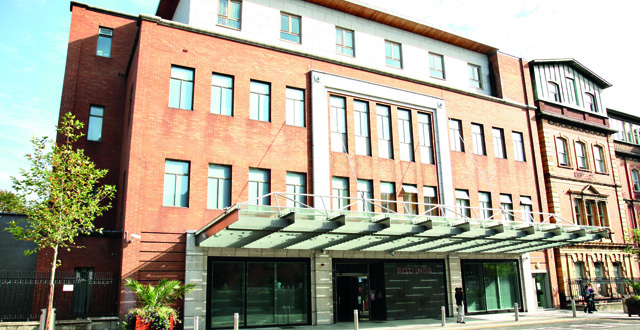To mark World Maternal Mental Health Day, which takes place today (4 May), the Rotunda Hospital in Dublin is aiming to raise awareness about the prevalence of mental health issues that individuals can face during pregnancy and in the period after giving birth. Figures show that one-in-five women will suffer with their mental health during pregnancy or after birth, with many experiencing feelings of worry, anxiety, a loss of confidence, interrupted sleep or exhaustion.
The hospital stated that while post-natal depression is broadly discussed, conversations around depression during pregnancy and anxiety and eating disorders in the perinatal period are “less well-known and need to be brought to the fore to support women and lead them to the necessary supports”.
The current maternal mental services in place in the Rotunda Hospital are “being absorbed by the huge demand that the hospital experienced during the Covid-19 pandemic”.
Based on figures from 2021, the hospital experienced an increase in patient presentations for general anxiety and severe mental illness through its specialist perinatal mental health service. The service support patients with expert advice and treatment during pregnancy and after birth.
In 2021, 4,886 sessions were offered to women, representing a 4.3 per cent increase on the number of appointments in 2020. Of these appointments, 1,289 were with new patients. In addition to these, there were 1,022 clinical group sessions held in the hospital covering three areas: emotional wellbeing in pregnancy, fear of birth and ‘Me to Mum’, which focuses on “the psychological changes that come with motherhood”. An estimated 413 women attended the group sessions.
Home visits were limited by Covid-19, with a total of 21 visits taking place throughout the year. During the Covid pandemic the specialist perinatal mental health services relied extensively on telemedicine. This has included moving groups online and enhanced online supports.
A psychological birth trauma service was introduced in February 2021 and 102 women attended this clinic. The service offers women and families an opportunity to obtain a greater understanding of events surrounding the birth of their baby/babies and assesses individuals for symptoms of post-traumatic stress. Where necessary, trauma focused intervention, like cognitive behavioural therapy or eye movement desensitization and reprocessing are delivered.
Dr Richard Duffy, Perinatal Psychiatrist in the Rotunda Hospital, said: “The current services in place in the Rotunda Hospital are being absorbed by the huge demand that we have seen in the past two years during the Covid-19 pandemic. This increased demand is not only specific to the Rotunda, with mental health professionals across all disciplines continuing to experience increased presentations. To ensure that we can fully support women and their mental health during pregnancy and postnatally, the existing posts need to be filled, additional services need to be funded especially in peripheral maternity centres and a dedicated mother and baby unit needs to be opened.
“This unit would allow mothers to stay with their babies, usually in the same room, during the necessary time of their treatment. There are currently more than 20 units like this in the UK. At present, maternity units in Ireland do not have the capacity or facilities to enable new mothers to access treatment alongside their baby, which can have negative impacts on recovery. The Government has acknowledged the importance of these units, and we hope to see them introduced as soon as possible.”













Leave a Reply
You must be logged in to post a comment.